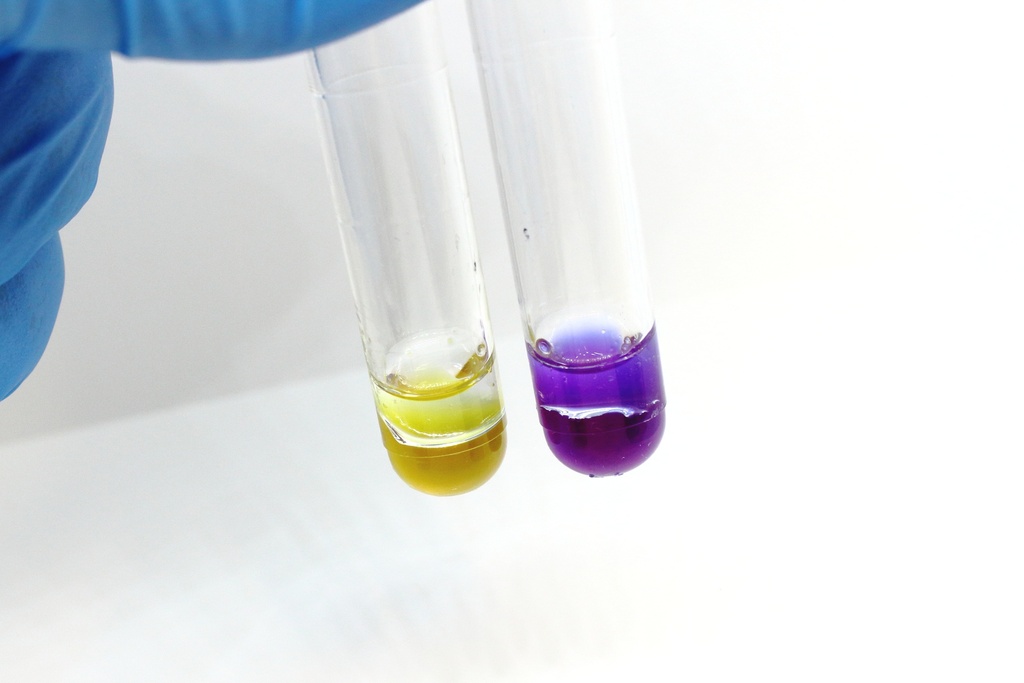Liofilchem™ Ornithine Decarboxylase Test, 30 Tests
Catalog No :
CAS Number :
Brand :
In Stock
Specifications:
| Application | Microbiology | ||
| Storage Temperature | 2-8°C | ||
| Product Type | Biochemical Reagent | Forms | Liquid |
| Product Brand | Liofilchem | ||
| Product Grade | Microbiology grade | ||
Rapid Test for Detection of Ornithine Decarboxylase Activity in Bacterial Isolates
The Liofilchem® Ornithine Decarboxylase Test is a rapid, in vitro diagnostic tool designed for the identification and differentiation of Enterobacteriaceae and other Gram-negative bacteria. The test detects the enzymatic activity of ornithine decarboxylase, enabling biochemical differentiation based on decarboxylation reactions. It is widely used in clinical microbiology laboratories, food and water testing, pharmaceutical quality control, and academic research.
Principle of the Test
The test is based on the ability of certain bacteria to produce the enzyme ornithine decarboxylase, which catalyzes the removal of the carboxyl group from L-ornithine, forming putrescine, an amine that increases the pH of the medium.
The test medium contains:
- Ornithine – the amino acid substrate for the enzyme
- Glucose – fermentable sugar to induce acidic conditions
- Pyridoxal – a coenzyme essential for decarboxylase activity
- Bromocresol purple – a pH indicator
Test reactions:
- Positive reaction (purple): Indicates ornithine decarboxylase activity and putrescine production, causing an alkaline shift.
- Negative reaction (yellow): Indicates fermentation of glucose only, without decarboxylase activity.
Key Features & Benefits
✅ Rapid and Easy-to-Use
Requires minimal setup; results available within 18–96 hours.
✅ Reliable Differentiation
Effectively differentiates enteric bacilli and other Gram-negative bacteria.
✅ Clear Color Change for Interpretation
Distinct color shift from yellow (acidic) to purple (alkaline) simplifies results interpretation.
✅ High Specificity
Based on decarboxylation of L-ornithine, avoiding non-specific reactions.
✅ Standardized Format
Pre-dosed tubes ensure consistency and reproducibility across tests.
✅ Quality Controlled
Validated against reference strains (e.g., E. coli, Salmonella, Proteus mirabilis).
Test Procedure
- Allow test tubes to reach room temperature.
- Add 0.3 mL of physiological saline to each tube.
- Inoculate with a pure culture from overnight incubation.
- Overlay the medium with 2–3 drops of sterile mineral oil.
- Incubate at 35 ± 2°C for up to 96 hours.
- Observe daily for color changes.
Interpretation of Results
| Result | Tube Color | Interpretation |
|---|---|---|
| Positive | Purple | Ornithine decarboxylase present (alkaline) |
| Negative | Yellow | No enzyme activity (acidic) |
| Unchanged | No color shift | Non-fermenters or invalid result |
Quality Control Strains
| Strain | Reaction |
|---|---|
| Proteus mirabilis ATCC® 25923 | Positive (purple) |
| Escherichia coli ATCC® 25922 | Positive (purple) |
| Salmonella Typhimurium ATCC® 14028 | Positive (purple) |
| Klebsiella pneumoniae ATCC® 13383 | Negative (yellow) |
Product Specifications
| Component | Details |
|---|---|
| Format | 30 test tubes |
| Storage Temperature | 2–8°C |
| Shelf Life | 1 year from manufacturing date |
| Catalogue Number | 88015 |
| Intended Use | In vitro diagnostic use (IVD) |
Applications
- Clinical diagnostics for enteric pathogens
- Bacterial identification in research labs
- Screening of food and water for microbial contamination
- Educational use in microbiology training
Safety and Compliance
- For professional use only
- Not hazardous under current legislation
- Dispose of all biohazardous materials per local regulations
- Refer to Safety Data Sheet (SDS) for handling precautions
Ordering Information
| Product | Ref. No. | Pack Size |
|---|---|---|
| Ornithine Decarboxylase Test Kit | 88015 | 30 Tests |
The Liofilchem® Ornithine Decarboxylase Test is a dependable, easy-to-interpret solution for the detection of ornithine decarboxylase activity in bacterial isolates. With its rapid turnaround, standardized reagents, and clear visual results, it supports efficient microbiological diagnosis and differentiation of Gram-negative bacteria.




 0
0
